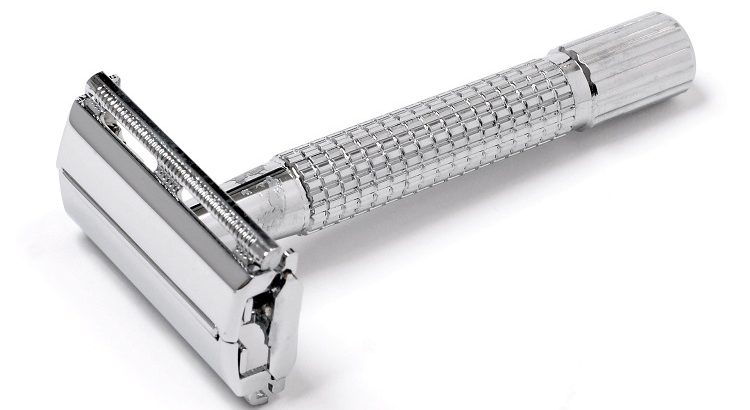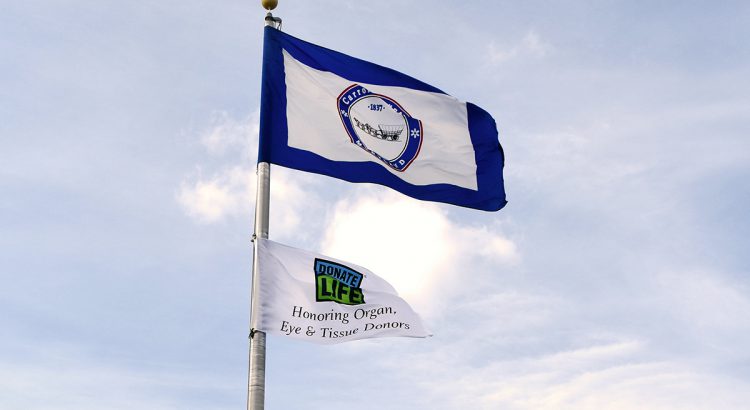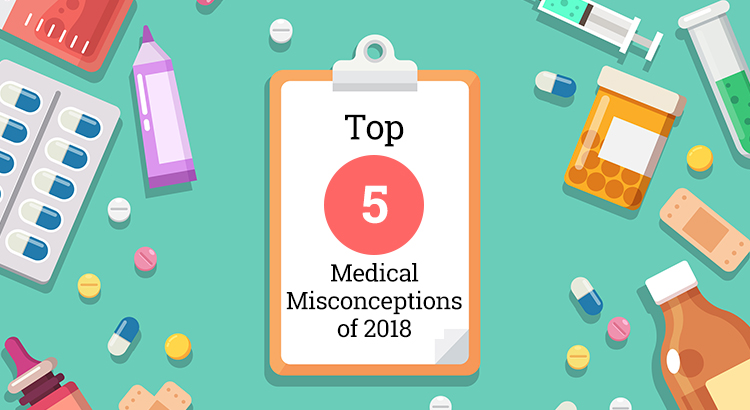It’s the end of another successful year of busting common medical myths! Check out the five most popular Medical Misconception blog posts in 2018:
Tag: medical myth

Medical Misconception: Over-the Counter Medications and Supplements
Each month, we set the facts straight on a health and wellness myth.
This month’s myth: All over-the-counter medications and supplements are safe.
It is a common assumption that over-the-counter medicines and supplements aren’t true medications and, since they can be purchased without a prescription, that they are safe. However, that is a dangerous and incorrect assumption.

Medical Misconception: Shaving
Each month we set the facts straight regarding a popular health and wellness myth.
This month’s myth: Shaving makes hair grow back faster and thicker.
Many of us have heard that shaving causes our hair to grow back more quickly, and the hair that returns is darker and thicker than before. But no matter how much anecdotal evidence we have, this ongoing belief is just a myth.

Medical Misconceptions: Sun Protection
Each month we set the facts straight regarding a popular health and wellness myth.
This month’s misconception: Sun protection practices
Today is the first day of summer and, for many, it’s a season filled with outdoor activities. Whether you’re heading to the shore or staying close to home, sun protection is vital for outdoor summer fun. This month, we’re clarifying four sun protection myths:

Medical Misconception: Storing Medications
Medical misconception: The bathroom medicine cabinet is the best place to store medications.
It seems like a good idea – having your medications all in one place within easy reach. Many bathrooms feature a mirrored chest attached to the wall commonly known as a medicine cabinet, so this seems like the natural place to store your medications. But, while it’s convenient, this spot may be one of the worst places to store your prescriptions.

Medical Misconception: Stomach Ulcers
Each month we set the facts straight regarding a popular health and wellness myth.
This month’s misconception: Stomach ulcers are caused by stress and spicy food.
There it is again – that burning feeling in your stomach. Sometimes it comes when you haven’t eaten, or it keeps you up late at night. It can last for a few minutes or a few hours, sometimes for days, sometimes for months.

Medical Misconception: Poisonous Poinsettias
Each month we set the facts straight regarding a popular health and wellness myth.
This month’s misconception: Poinsettias are poisonous.
Holiday decorations play a big part in what makes this time of year so special, and poinsettias are often one of the staples of the season. For years, we’ve been told that poinsettias are poisonous to people and pets … but is that really the case?
In a word: No.
In an interview with the United States Department of Agriculture, Kansas State University Extension Horticulture Expert Ward Upham explained that the plant is not poisonous to children or pets. He said research has shown that a 50-pound child would have to eat 500 to 600 leaves to feel any discomfort.
In 1975, the Consumer Product Safety Commission denied the request to put warning labels on poinsettias and mistletoe sprigs identifying them as poisonous. According to the commission’s website, “The Commission’s review of the technical literature dealing with the toxicity of these plants did not disclose a degree of risk that would warrant its taking regulatory action.”
However, the commission explained that the denial of the petition should not be “…construed as endorsement of the complete safety of these plants,” and recommended keeping them away from small children.
So decorate with poinsettias to your heart’s content this season!

Medical Misconception: Allergies in Winter
Each month we set the facts straight regarding a popular health and wellness myth.
This month’s misconception: Allergies only exist in spring and summer.
It’s the middle of winter. You have a stuffy nose and you are sneezing. You must have a cold, right? Not so fast. You may be experiencing allergy symptoms in winter.

Medical Misconception: Waiting After Eating to Swim
Each month, we weigh in on a health and wellness myth and explain the real cause behind the malady.
This month’s misconception: Waiting 30 minutes after eating before swimming

Medical Misconception: Organ Donation
Each month, a health care professional weighs in on a health and wellness myth. This month’s myths surround organ donation.
